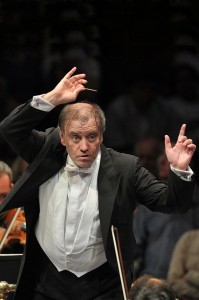The indefatigable Valery Gergiev
I came across this interview http://www.cbc.ca/news/arts/story/2012/11/12/f-valery-gergiev.html?cmp=rss that CBC news conducted with Valery Gergiev when he was in Canada to give a performance with the Mariinsky Theatre Stradivarius Ensemble. With his indefatigable work ethic, juggling several full-time and guest conducting jobs, he has become the face of Russian classical music. So much so, that Russian officials are using him as an ambassador of the Sochi Olympics, which begin in a little more than a year.
I was particularly interested to read the interview because on October 28th, on the eve of Hurricane Sandy, I rashly drove up to New Jersey to hear Gergiev and the Mariinsky Orchestra (formally known as the Kirov) give a performance of Richard Strauss’s Ein Heldenleben, Stravinsky’s Rite of Spring and Schotakovich’s First Piano Concerto at the New Jersey Performing Arts Center. They were due to go on to New York to perform at Carnegie Hall the following week but, with the storm coming, decided to high tail it out of America, and the buzz was that they were leaving for the airport the minute their concert at NJPAC was over.
Whether the pending hurricane was a contributing factor I don’t know, but I have to say that it seemed a rather lackluster performance. I didn’t experience the high octane charisma that I had been led to expect from Gergiev. For one thing, as we know, he tends to look like an unmade bed with his trademark half-shaven beard and awry hair, and he conducted with what looked like a tooth pick—I kid you not. At first I thought he was one of those baton-less conductors, but then he appeared to be holding something and, on closer inspection, it turned out to be this teeny tiny stick. The Rite of Spring, which one would think is in a Russian’s blood, was about half as thrilling as the rehearsal and performance I heard with Gustavo Dudamel and the Simon Bolivar Youth Orchestra in Washington a few years back, which Dudamel conducted without a score—not only the performance but also the rehearsal, which is no mean feat.
Having said all of this, though, there is a palpable camaraderie in the Mariinsky Orchestra. Gergiev conducts without a podium, so he is within the body of the orchestra and that gives a different dynamic to the ensemble. And there seems to be great fellowship amongst the players. After the concertmaster finished playing the huge violin solos in Ein Heldenleben, his desk partner turned to him and gave an affirming nod and smile, and there were many instances of that kind of support for each other, which is not something I have seen as vividly in an orchestra before. Overall, the playing is as fine as one would expect, and if the performance didn’t have quite the spark that their reputation suggests, perhaps one could put it down to the impending super-storm.
Tags:Igor Stravinsky, Mariinsky, music, Richard Strauss, Shostakovich, Valery Gergiev






